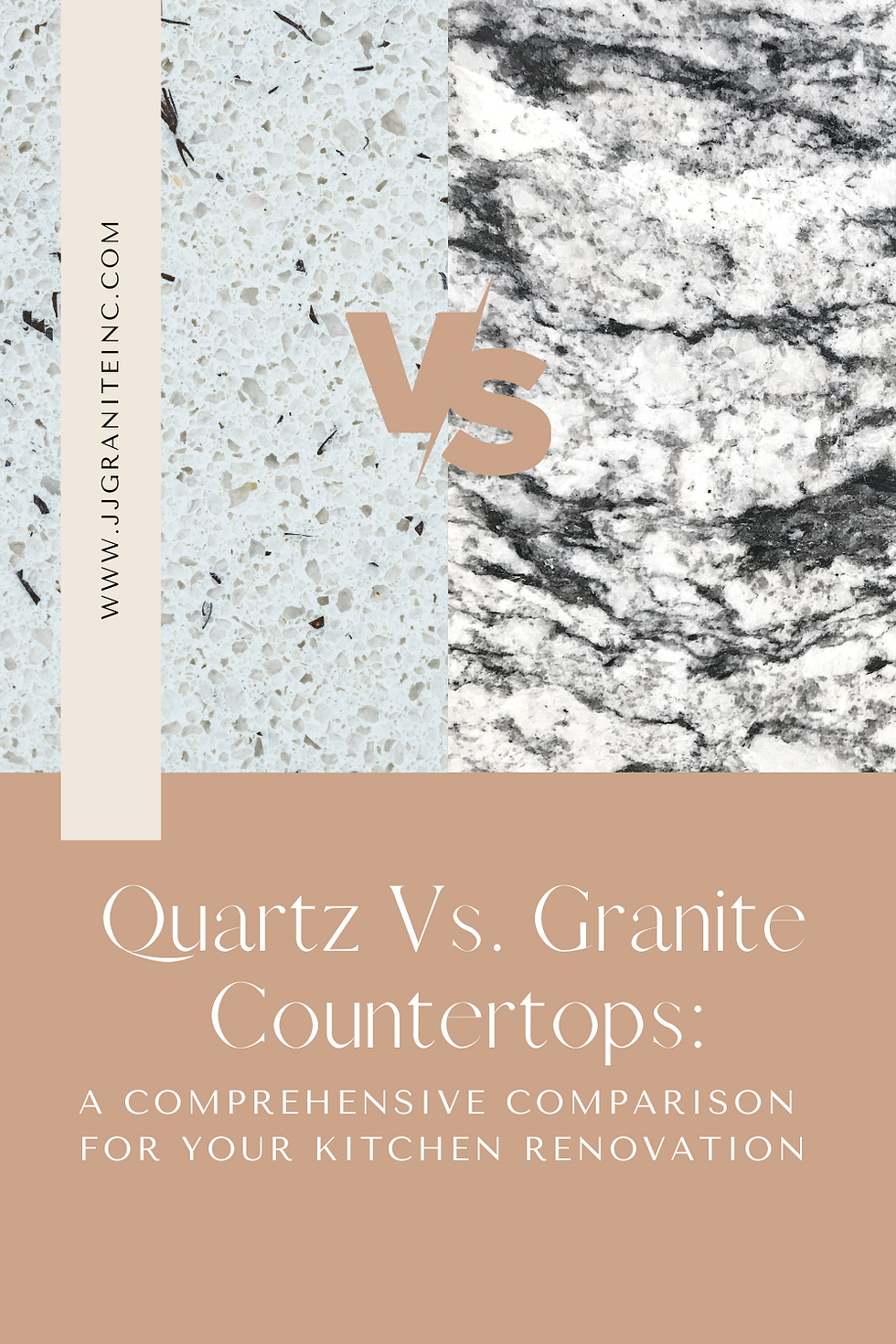Quartz vs Quartzite: Understanding the Differences for Your Countertops
- JJ Granite

- May 5, 2023
- 3 min read

Quartz vs. Quartzite: Understanding the Differences
When it comes to choosing the right countertop material for your home, it's essential to understand the differences between quartz and quartzite. Both materials are incredibly popular among homeowners, but they differ in terms of their composition, durability, and maintenance requirements. In this article, we'll explore the key differences between quartz and quartzite to help you make an informed decision.
What is Quartz?
Quartz is a man-made material that is composed of 93% natural quartz and 7% resin. The result is a highly durable and non-porous material that is resistant to stains, scratches, and heat. Quartz is available in a wide range of colors and patterns, making it a versatile choice for any design style. It's also relatively low maintenance, requiring only regular cleaning with soap and water.
What is Quartzite?
Quartzite, on the other hand, is a natural stone that is formed from sandstone and quartz. It is a hard, metamorphic rock that is extracted from quarries in large blocks. Quartzite is available in a variety of colors and patterns, and it is often used as a high-end alternative to marble due to its similar appearance. However, quartzite is more durable than marble and is resistant to scratches and heat. However, it is not entirely non-porous and may require sealing to prevent stains.
Differences between Quartz and Quartzite
The difference between quartz and quartzite is simple yet significant. Quartz is a man-made material that is highly durable and non-porous, while quartzite is a natural stone that is also durable but may require sealing to prevent staining. Here are some of the key differences between the two materials:
Composition: Quartz is composed of 93% natural quartz and 7% resin, while quartzite is a natural stone formed from sandstone and quartz.
Durability: Both materials are highly durable, but quartz is slightly more durable than quartzite due to its non-porous nature.
Maintenance: Quartz is relatively low maintenance and only requires regular cleaning with soap and water. Quartzite may require sealing to prevent staining.
Appearance: Quartz is available in a wide range of colors and patterns, while quartzite is often available in colors that are more similar to natural stone, such as white, gray, and beige.
Price: Quartz is generally less expensive than quartzite, but the exact cost will depend on factors such as the brand, pattern, and thickness.
Choosing the Right Material for Your Home
When it comes to choosing between quartz and quartzite for your home, there are several factors to consider. If you're looking for a highly durable, low-maintenance material that is available in a wide range of colors and patterns, quartz may be the best choice for you. However, if you're looking for a high-end natural stone with unique patterns and a more natural appearance, quartzite may be the way to go.
Ultimately, the choice between quartz and quartzite will depend on your personal preferences, budget, and design style. Both materials are excellent choices for countertops, and with proper care and maintenance, they can last for many years to come.
In conclusion, understanding the differences between quartz and quartzite is crucial when it comes to selecting the right countertop material for your home. While both materials are popular choices, they differ in terms of their composition, durability, maintenance requirements, appearance, and price. Whether you prefer the durability and non-porous nature of quartz or the unique patterns and natural appearance of quartzite, both materials can provide you with beautiful, long-lasting countertops that will enhance the beauty and functionality of your home. By weighing the pros and cons of each material and considering your personal preferences and budget, you can make an informed decision that you'll be happy with for years to come.




Comments